
Filter News
Area of Research
- Advanced Manufacturing (1)
- Biology and Environment (18)
- Clean Energy (23)
- Climate and Environmental Systems (1)
- Computational Engineering (1)
- Computer Science (4)
- Electricity and Smart Grid (1)
- Functional Materials for Energy (1)
- Fusion and Fission (3)
- Isotope Development and Production (1)
- Isotopes (8)
- Materials (32)
- Materials for Computing (5)
- National Security (14)
- Neutron Science (8)
- Nuclear Science and Technology (5)
- Quantum information Science (2)
- Supercomputing (43)
News Type
News Topics
- (-) Chemical Sciences (33)
- (-) Climate Change (25)
- (-) Computer Science (62)
- (-) Cybersecurity (18)
- (-) Frontier (16)
- (-) Irradiation (1)
- (-) Isotopes (21)
- (-) Mercury (2)
- (-) Molten Salt (2)
- (-) Space Exploration (3)
- 3-D Printing/Advanced Manufacturing (50)
- Advanced Reactors (12)
- Artificial Intelligence (31)
- Big Data (12)
- Bioenergy (25)
- Biology (23)
- Biomedical (18)
- Biotechnology (7)
- Buildings (16)
- Clean Water (1)
- Composites (10)
- Coronavirus (17)
- Critical Materials (11)
- Decarbonization (23)
- Education (3)
- Element Discovery (1)
- Energy Storage (44)
- Environment (45)
- Exascale Computing (12)
- Fossil Energy (1)
- Fusion (14)
- Grid (18)
- High-Performance Computing (31)
- ITER (2)
- Machine Learning (14)
- Materials (69)
- Materials Science (54)
- Microelectronics (1)
- Microscopy (18)
- Nanotechnology (28)
- National Security (20)
- Net Zero (4)
- Neutron Science (56)
- Nuclear Energy (33)
- Partnerships (28)
- Physics (24)
- Polymers (13)
- Quantum Computing (10)
- Quantum Science (28)
- Renewable Energy (1)
- Security (11)
- Simulation (11)
- Software (1)
- Statistics (2)
- Summit (21)
- Sustainable Energy (37)
- Transformational Challenge Reactor (4)
- Transportation (32)
Media Contacts

Scientists at ORNL used their expertise in quantum biology, artificial intelligence and bioengineering to improve how CRISPR Cas9 genome editing tools work on organisms like microbes that can be modified to produce renewable fuels and chemicals.
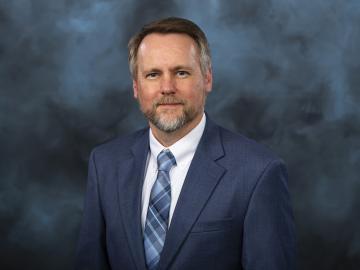
Michael McGuire’s recognition as the Oak Ridge National Laboratory's top scientist headlined the annual awards. ORNL Director Stephen Streiffer also presented Director’s Awards to two teams, for operational performance and continuous improvement, and to the night’s science communicator awardee
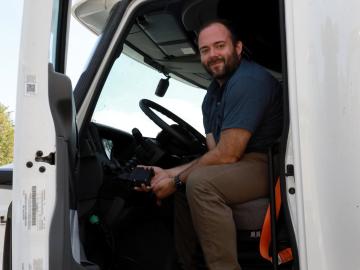
As vehicles gain technological capabilities, car manufacturers are using an increasing number of computers and sensors to improve situational awareness and enhance the driving experience.
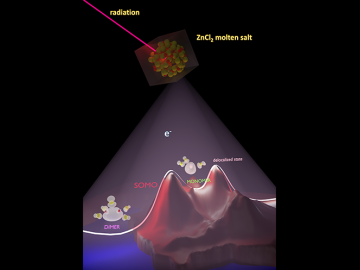
In a finding that helps elucidate how molten salts in advanced nuclear reactors might behave, scientists have shown how electrons interacting with the ions of the molten salt can form three states with different properties. Understanding these states can help predict the impact of radiation on the performance of salt-fueled reactors.
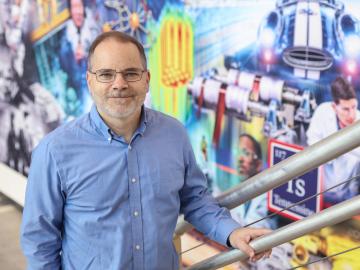
ORNL has been selected to lead an Energy Earthshot Research Center, or EERC, focused on developing chemical processes that use sustainable methods instead of burning fossil fuels to radically reduce industrial greenhouse gas emissions to stem climate change and limit the crisis of a rapidly warming planet.

Using light instead of heat, researchers at ORNL have found a new way to release carbon dioxide, or CO2, from a solvent used in direct air capture, or DAC, to trap this greenhouse gas. The novel approach paves the way for economically viable separation of CO2 from the atmosphere.

The Department of Energy’s Oak Ridge National Laboratory announced the establishment of the Center for AI Security Research, or CAISER, to address threats already present as governments and industries around the world adopt artificial intelligence and take advantage of the benefits it promises in data processing, operational efficiencies and decision-making.
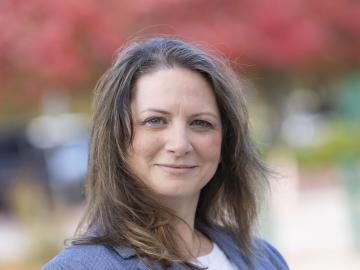
Michelle Kidder, a senior R&D staff scientist at ORNL, has received the American Chemical Society’s Energy and Fuels Division’s Mid-Career Award for sustained and distinguished contributions to the field of energy and fuel chemistry.
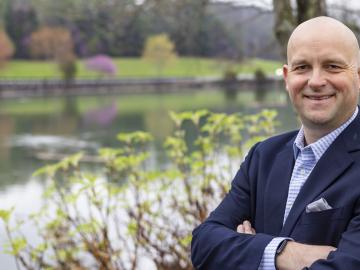
Leigh R. Martin, a senior scientist and leader of the Fuel Cycle Chemical Technology group at ORNL, has been named a Fellow of the American Chemical Society for 2023.
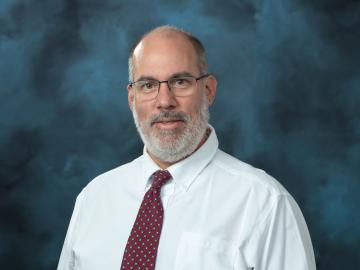
Eric Myers of ORNL has been named a senior member of the Institute of Electrical and Electronics Engineers, effective June 21.


